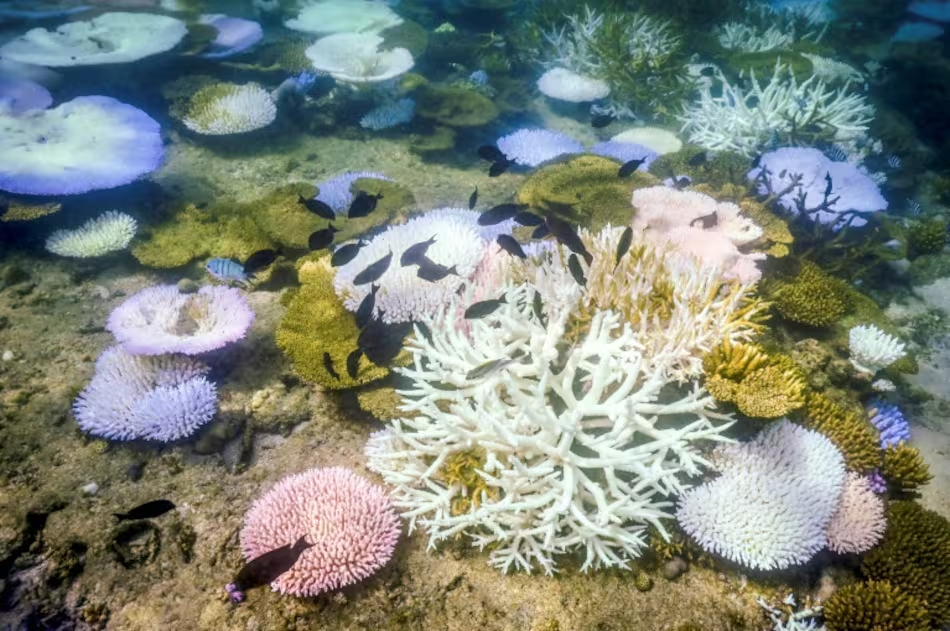Australia’s Great Barrier Reef has experienced its “most extensive” bleaching event ever recorded , according to a government report released Wednesday warning of the dire health of the natural wonder.
Scientists have documented the “most spatially extensive” bleaching event on this reef, considered the largest living structure in the world , since records began nearly 40 years ago.
This phenomenon occurs when water temperatures rise, forcing corals to expel microscopic algae called zooxanthellae. If the warm conditions persist, these life forms can eventually bleach and die.
According to the Australian Institute of Marine Science report , the latest episode was triggered precisely by elevated ocean temperatures in 2024, which triggered “unprecedented levels of thermal stress.”
The agency studied the condition of 124 coral reefs between August 2024 and May 2025.
The northern and southern branches of the sprawling reef had suffered “the largest annual decline in coral cover” ever recorded, according to the government agency.
The corals had been battered by tropical cyclones and the crown-of-thorns starfish, which feeds on them.
But “the main cause is climate change,” said Mike Emslie, a senior researcher at the Australian institute. “There’s no doubt about it,” he told AFP .
“Heat stress”
Stretching for 2,300 kilometers , the Great Barrier Reef is home to a multitude of tropical corals and impressive biodiversity.
However, repeated episodes of bleaching threaten to deprive this famous tourist attraction of its wonder, turning the once vibrant coral reefs a whitish hue.
Unusually warm tropical waters already caused widespread bleaching in 2024 and early 2025, the sixth such event in the past nine years.
“The Great Barrier Reef experienced unprecedented levels of thermal stress, resulting in the most spatially widespread and severe bleaching event on record,” the report said.
Over the past two years, a massive global bleaching event has wiped out more than 80% of the planet’s coral reefs.
Emslie said past coral growth would help cushion the record losses and that the Great Barrier Reef remains an “amazing place.”
It’s worth “fighting”
“It’s still worth fighting. We can’t throw in the towel and give up,” he said.
The report revealed that a fast-growing type of coral, known as acropora, was the hardest hit. It grows in size quickly, but is also one of the first to bleach.
Richard Leck of the World Wildlife Fund (WWF) compared the fluctuating health of the Great Barrier Reef to a “roller coaster.”
“It’s a sign that the ecosystem is under incredible stress, and what worries scientists most is that the reef won’t recover as it has so far,” he told AFP.
Leck said some coral reefs around the world are beyond recovery and warned that the Great Barrier Reef could suffer the same fate without ambitious and swift climate action.
The average sea surface temperature around Australia was the “highest ever recorded” in 2024, according to the Australian National University.
The country is currently developing its next round of emissions reduction targets, a key obligation under the historic Paris climate agreement.
The mining superpower remains one of the world’s largest coal exporters and continues to heavily subsidize its fossil fuel sectors.





No Comments